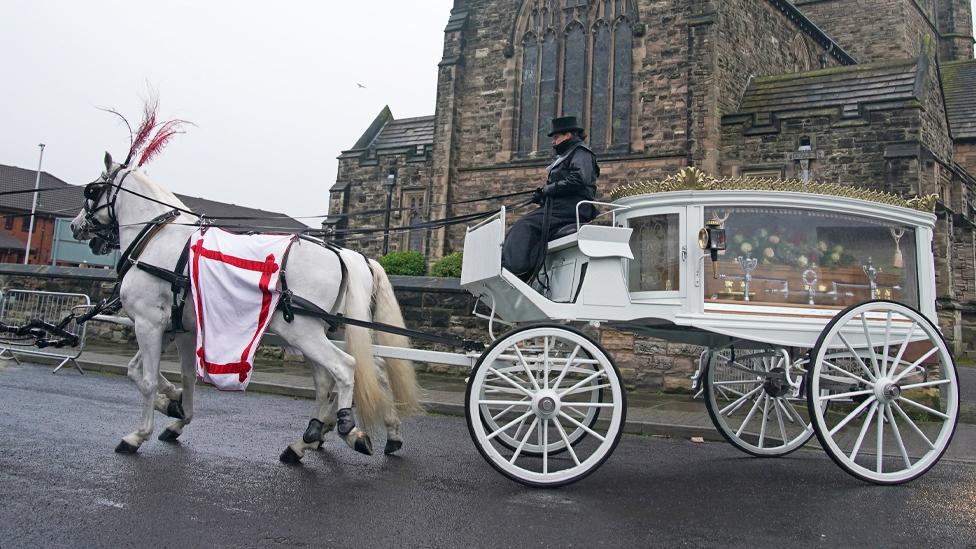Elle Edwards murder: What can be done to better tackle violent gangs?
- Published
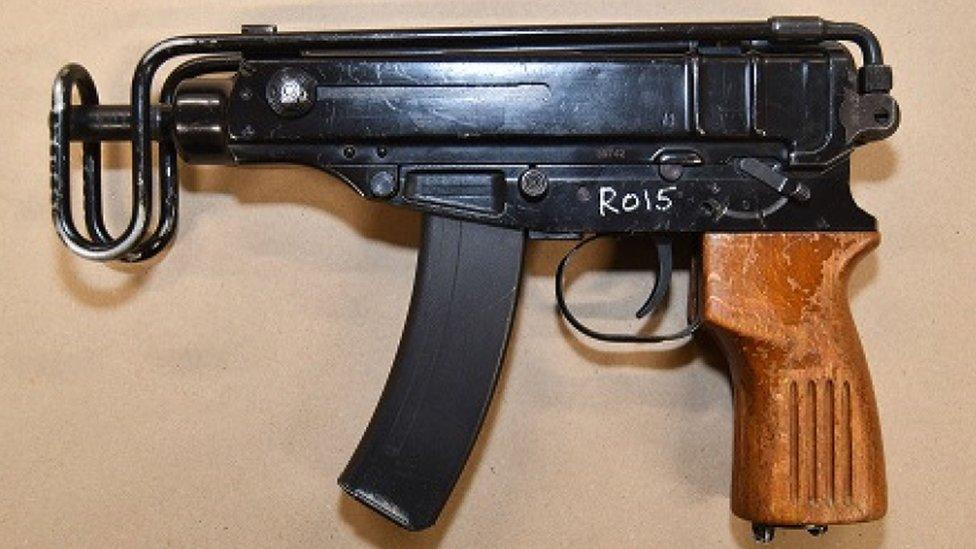
Connor Chapman used a Skorpion sub-machine gun similar to this one shown to the jury
Gaps in community intelligence and a lack of "bobbies on the beat" are thwarting efforts to tackle gang crime in Merseyside, a policing expert has said following the murder conviction of Connor Chapman for shooting Elle Edwards outside a pub on Christmas Eve.
The death of the 26-year-old beautician - an innocent bystander who had simply been having drinks with her friends - was the culmination of a violent feud between two Wirral gangs.
The day before the shooting, a man from the same Woodchurch estate as Chapman was seriously assaulted by two men from the rival Ford/Beechwood estate, which lies just across the M53.
Liverpool Crown Court heard the pair were the intended targets for Chapman, who was seeking revenge for that incident as well as two recent shootings.
Ms Edwards just happened to be near them when she was fatally hit in the head by two of the 12 bullets fired in less than four seconds by Chapman towards the Lighthouse pub in Wallasey Village.
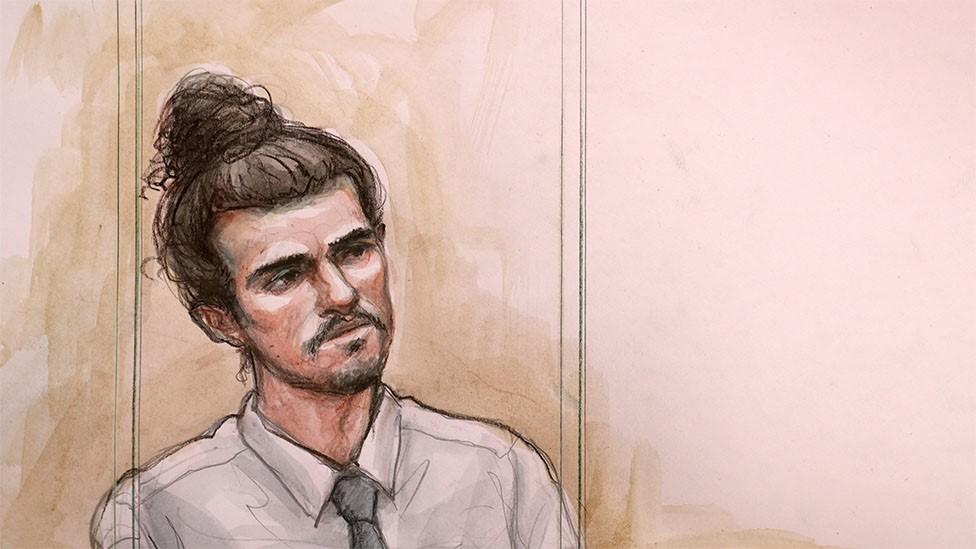
Connor Chapman has a long criminal record
Criminality was part and parcel of normal life for Chapman - he tried to convince the jury he wasn't a murderer, "only a drugs dealer".
The now 23-year-old fell into a life of relatively low-level crime from an early age and spent much of his later teenage years in and out of custody.
At his trial, Chapman said the Christmas of 2022 had been the first he had not spent in prison for at least three years.
Chapman was a member of one of more 100 Organised Crime Groups (OCGs) thought to be operating on Merseyside.
He was not a member of one of the larger gangs involved in serious criminality which import Class A and B drugs and are involved in supplying guns, money laundering, modern-day slavery and people trafficking.
Rather, he was in one of the gangs based upon narrow geographical areas.

How is Merseyside affected by gun crime?
In 2021-22, Merseyside Police recorded 211 firearm offences, placing it in the top 10 worst affected areas in England and Wales
That represented a 51% increase on the previous year when there were 140 firearm offences recorded, but it remained lower than pre-pandemic levels, when there were 227 offences recorded
London (1,066 offences) and the West Midlands (585) recorded the highest number of firearm offences in 2021-22
Nationally, police recorded 5,752 firearm offences in the year ending March 2022, which was a decrease on the 6,618 offences recorded pre-pandemic
Across England and Wales, a total of 35 deaths were reported involving a firearm in the year ending March 2021, with 27 being reported in the year before

Merseyside Police is attempting to tackle gangs by digging at the grassroots, trying to uncover the reasons why organised crime takes hold in some communities.
They then either remove the gang leaders or try to make it impossible for them to operate.
There is an acceptance from senior officers that it is impossible to simply "arrest" their way out of the problem, though, and that the answers lie within the communities themselves.
They are working to make the area criminals operate in "toxic".
In a project targeting three estates in Wirral with a marked increase in police activity, there have been 379 arrests, 740 stop and searches and 90 warrants executed in the first four months of 2023.
Officers say they've seized cannabis plants with a value of £1.3m as well as weapons, luxury goods and cash.
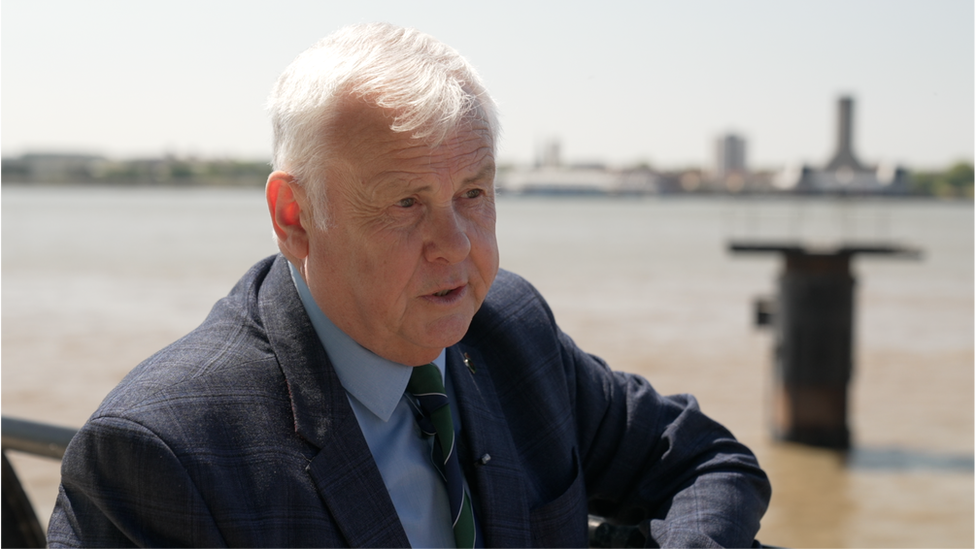
Former Merseyside Police Inspector Peter Williams
Former senior police officer Peter Williams is a senior lecturer at the Liverpool Centre for Advanced Policing Studies at John Moores University.
He thinks there needs to be a return to "bobbies on the beat" and more community policing.
"It's been necessary for chief officers to withdraw their neighbourhood teams" since the austerity cuts of 2010, he says, "but that role was a key part of partnership working.
"The void that's in small geographical areas has allowed criminal groups to move in."
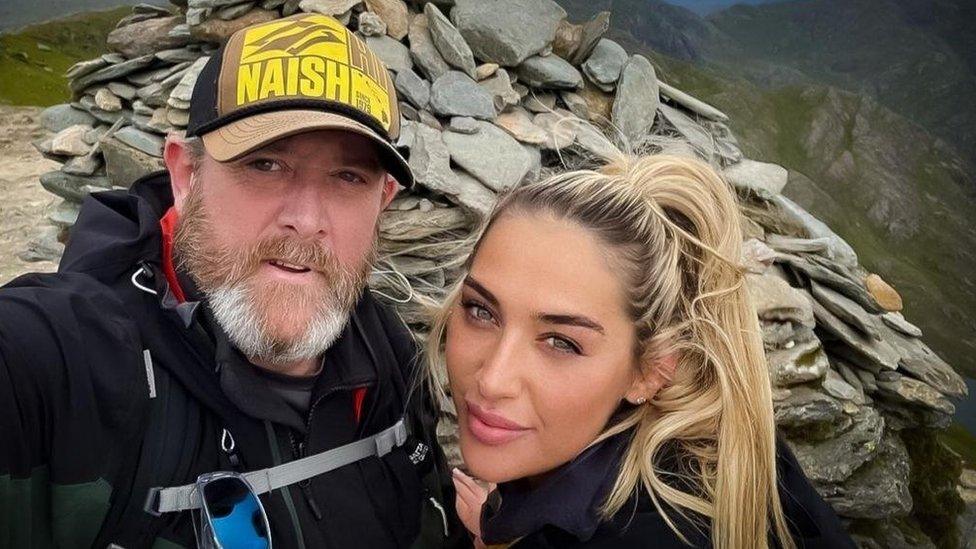
Tim Edwards, pictured on a climb of Mount Snowdon, with his daughter Elle
Mr Williams' thoughts are echoed by Elle Edwards' father Tim, who says parents need to take more responsibility for their children.
"The most powerful thing we have is the sense of community. Back in the day if you stepped out of line there'd be some members of your family find out and you'd get a clip around the ear.
"There'd be some form of intervention to stop anything else going further. I think we've lost that."
Mr Edwards acknowledged many residents were intimidated by local gangs in their area but urged people to "stick together".
"We can point the finger at the government, and we can point the finger at councils and at people who've let you down, or let these communities down.
"But they don't live day to day in your house - you do, with your kids. So at the end of the day it really is down to you and how you bring those kids up."
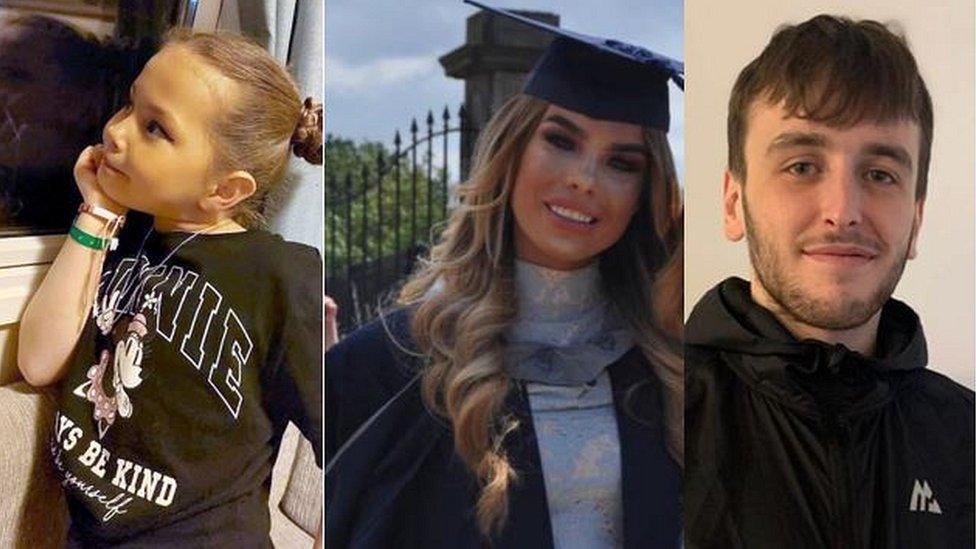
Olivia Pratt-Korbel, Ashley Dale and Sam Rimmer were fatally shot within the space of a week in Liverpool in August 2022
Earlier this year Wirral MPs appealed for government funding to help with community work in the wake of Ms Edwards's murder, similar to sums received by Liverpool last year following the fatal shootings of Olivia Pratt-Korbel, Ashley Dale and Sam Rimmer.
Mr Williams says there are also serious intelligence gaps at USG (Urban Street Gangs) and OCG levels.
"My point is that it's down, to some extent, to the demise of neighbourhood policing and the almost withdrawal from those areas."
He says local-level policing needs to be reinstated because it will not only tackle the fear of crime but also help kickstart the flow of intelligence.
Merseyside Police has done much work already - it has been rated "outstanding" by HM Inspectorate of Constabulary (HMIC) in its approach to serious and organised crime every year since 2014, while the number of firearms offences has remained constant in recent years.
In 2005 it became the first force outside London to set up a dedicated guns and gangs department, Matrix, with specially trained officers.
'Big profits'
Central to the work of Matrix is the removal of weapons from the streets.
The gun used in the attack which killed Ms Edwards was a Skorpion sub-machine gun, made in the Czech Republic.
A military-grade weapon, it is capable of operating in a number of modes - semi and fully automatic - and can fire up to 14 rounds a second.
"The issue of weapons is a longstanding one," Mr Williams says. "It started to manifest itself when the Berlin Wall came down in 1989 and the barriers of Europe opened.
"The fact Liverpool is a port makes smuggling easier. It's always had a drugs problem and that has allowed OCGs to take hold.
"Burglaries and the theft of vehicles have virtually gone and crime has changed again. The opportunity to make the big profits lies with drugs."
Additional reporting by Monica Rimmer and Phil McCann

Why not follow BBC North West on Facebook, external, Twitter, external and Instagram, external? You can also send story ideas to northwest.newsonline@bbc.co.uk, external
- Published6 July 2023
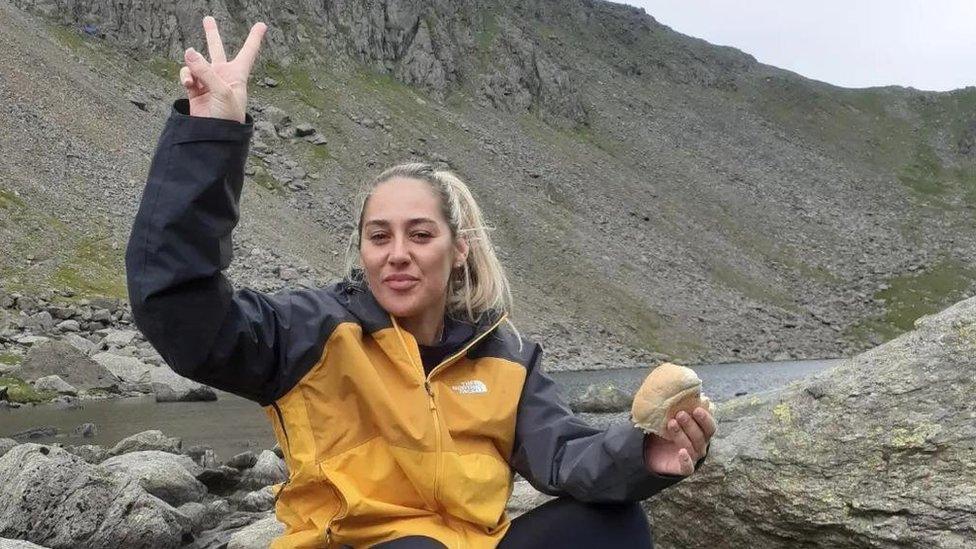
- Published6 July 2023

- Published25 January 2023
